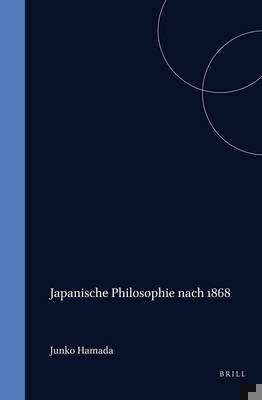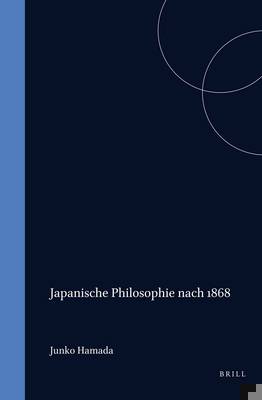
- Afhalen na 1 uur in een winkel met voorraad
- Gratis thuislevering in België vanaf € 30
- Ruim aanbod met 7 miljoen producten
- Afhalen na 1 uur in een winkel met voorraad
- Gratis thuislevering in België vanaf € 30
- Ruim aanbod met 7 miljoen producten
Zoeken
Omschrijving
This volume deals with philosophical trends in Japan from the beginning of the Meiji era (1868) to the present, in connection with European philosophy, arranged in two chapters, a full chronological table of publications and an index of names.
The first chapter follows philosophical trends up to 1945; the first question treated is: How did the Japanese receive that European philosophy known as liberation and enlightenment? They soon began to develop their own philosophy, in particular under the influence of German idealism; for instance in the work of Nishida, Tanabe, Miki, Kuki and Watsuji.
The trend makes a 180-degree turn in 1945. The experiences of a defeated Japan lead to the confrontation with the self and all existing selves; it is once more a liberation, and there occurs then a new tendency, from 'reason' to 'body'; as, for instance, in Nakamura Hajime, Izutsu Toshihiko and Yuasa Yasuo.
The first chapter follows philosophical trends up to 1945; the first question treated is: How did the Japanese receive that European philosophy known as liberation and enlightenment? They soon began to develop their own philosophy, in particular under the influence of German idealism; for instance in the work of Nishida, Tanabe, Miki, Kuki and Watsuji.
The trend makes a 180-degree turn in 1945. The experiences of a defeated Japan lead to the confrontation with the self and all existing selves; it is once more a liberation, and there occurs then a new tendency, from 'reason' to 'body'; as, for instance, in Nakamura Hajime, Izutsu Toshihiko and Yuasa Yasuo.
Specificaties
Betrokkenen
- Auteur(s):
- Uitgeverij:
Inhoud
- Aantal bladzijden:
- 200
- Taal:
- Duits
- Reeks:
- Reeksnummer:
- nr. 5
Eigenschappen
- Productcode (EAN):
- 9789004098978
- Verschijningsdatum:
- 1/11/1993
- Uitvoering:
- Hardcover
- Formaat:
- Genaaid
- Afmetingen:
- 176 mm x 246 mm
- Gewicht:
- 508 g

Alleen bij Standaard Boekhandel
+ 488 punten op je klantenkaart van Standaard Boekhandel
Beoordelingen
We publiceren alleen reviews die voldoen aan de voorwaarden voor reviews. Bekijk onze voorwaarden voor reviews.








